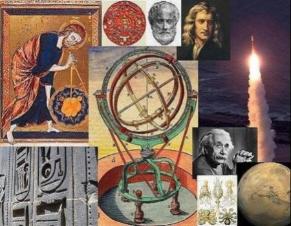
My writings cover an ample spectrum, related above all to physics and institutions of the XIX and XX Centuries. The specific and general theories of relativity and quantum mechanics, the history of science in Spain, the relation between power and science, and scientists such as James Clerk Maxwell, Albert Einstein, Blas Cabrera, Miguel Catalán, José Echegaray and Santiago Ramón y Cajal occupy the major part of my interests.
Concretely, the fields that I frequent most are the following (although I also deal with others, as Issac Newton and Charles Darwin):
1.- History of the development and reception in Great Britain and Spain (1910-1930) of the specific and general theories of relativity
The origin and development of relativity (Alianza Universidad, Madrid 1983, 1985); “The reception of special relativity in Great Britain”, in The Comparative Reception of Relativity, T.F. Glick, ed. (Reidel, Dordrecht 1987), pp. 27-58; “The reception of general relativity among British physicists and mathematicians (1915-1930)”, in Einstein Studies, vol. 3 (Birkhauser, Boston-Basel-Berlin 1992), pp. 57-88; “Larmor versus general relativity”, in The Expanding Worlds of General Relativity, vo. 7 of Einstein Studies (Birhauser, Boston 1999) pp. 405-430; “The early reception of Einstein’s relativity among British philosophers”, in Einstein and the Changing World View of Physics, Einstein Studies, vol. 12 (Birkhäuser, Boston 2010), pp. 75-118.
2.- History of science in Spain: Scientific institutions and scientists (XIX and XX Centuries): The Board for Broadening Studies and Scientific Research, the National Research Council, the National Institute of Aerospace, the Board of Nuclear Energy. José Echegaray. Blas Cabrera. Miguel Catalán. Santiago Ramón y Cajal. Einstein in Spain.
1907-1987. The Board for Broadening Studies and Scientific Research 80 years after. J.M. Sánchez Ron, coordinator, 2 volumes (CSIC, Madrid 1988); “Spain’s first school of physics: Blas Cabrera’s Laboratory of Research in Physics” (with Antonio Roca Rosell), Osiris 8, 127-155 (1993); “Nuclear energy in Spain” (with Javier Ordoñez, in National Military Establishments and the Advancement of Science and Technology, Paul Forman and José M. Sánchez-Ron, eds. (Kluwer, Dordrecht 1996), pp. 185-213; Chisel, hammer and stone. History of science in Spain (XIX and XX Centuries) (Taurus, Madrid 1999,2000); Nuclear energy in Spain. From the JEN to the CIEMAT (with Ana Romero de Pablos) (CIEMAT, Madrid 2001); “International relations in Spanish physics from 1900 to the Cold War”, Historical Studies in the Physical and Biological Sciences 33, 1, 3-21 (2002); “Physics in Madrid: where science competed with art”, Physics in Perspective 8, 318-343 (2006); “Science frustrated: the ‘Einstein Institute’ in Madrid” (with Thomas F. Glick). Minerva 44, 355-378 (2006); “The origins of Spain’s participation in ESRO”, in Spain and the European Space Effort, José María Dorado Gutiérrez, ed.(Beauschesne, París 2008), pp. 173-199, “Science and politics: Ramón y Cajal’s intervention in Gisueppe Levi’s 1934 liberation” (with Juan Fernández Santarén), Journal of the History of the Neurosciences 18, 137-149 (2009).
3.-Cosmology: Relativistic Cosmology. Cosmology of the stable state
“Steady-state theory, the arrow of time, and Hoyle and Narlikar’s theories”. Modern Cosmology in Retrospect, B. Bertolli, R. Balbinot, S. Bergia and A. Messina, eds. (Cambridge University Press, Cambridge 1990), pp. 233-243; “George McVittie, the uncompromising empiricist”. Einstein Studies, vol. 11 (The Universe of General Relativity) (Birkhauser, Boston 2005), pp. 189-221.
4.-Physics and physicists (Maxwell, Einstein) of the XIX and XX Centuries. History of quantum mechanics. Philosophy and science.
“A man of many worlds: Schrodinger in Spain”, in Erwin Schrodinger. Philosophy and the Birth of Quantum Mechanics, Michel Bitbol and Oliver Darrigol, eds. (Editions Frontières, Gift-sur-Yvette 1992), pp. 9-22; James Clerk Maxwell Scientific Writings (bilingual edition), translation, study and notes of José M. Sánchez Ron (CSIC, Madrid 1998); Maxwell, James Clerk (1831-1879)”, in Reader’s Guide to The History of Science, Arne Hessenbruch, ed. (Fitzroy Dearborn Publishers, London 2000), pp. 448-449; History of quantum physics I: The founding period (1860-1926) (Critique, Barcelona 2001, 2004); “Memories of old times: Schlick and Reichenback on time in quantum mechanics”. Time in Quantum Mechanics, 2,G.Muga, A. Ruschhapf and A. Campos, eds. (Springer, Heidelberg 2009), pp. 1-13.
5.-Power and science. Institutions.
National Military Establishments and the Advancement of Science and Technology. Paul Forman and J.M. Sánchez-Ron, eds. (Kluwer, Dordrecht 1996); “From the private to the public: The road from Zurich (1897) to Madrid (2006)”, in Proceedings of the International Congress of Mathematicians. Madrid, August 22-30, 2006, vol.I (“Plenary Lectures and Ceremonies”), Marta Sanz-Solé, Javier Soria, Juan Luis Carona and Joan Cerdera, eds. 8European Mathematical Society, Zurich 2007), pp. 777-793; The power of science. Social, political and economic history of science (XIX and XX Centuries)(Critique, Barcelona 2007); Science, politics and power: Napoleon, Hitler, Stalin and Eisenhower (BBVA Foundation, Madrid 2009).
6.-Science and language. The great books of science.
Praise of miscegenation. History, language and science, acceptance speech at the Royal Spanish Academy (Madrid 2003). The scientific canon (Critique, Barcelona 2005, 2006); The great books of science: of ancient Hellene to the genome era. (Spanish Institute, Madrid 2009).
7.-Scientific release
Science dictionary (Planeta, Barcelona 1996; Critique, Barcelona, 2006); The world of science (Espasa, Madrid 2002); Long Live Science! (with Antonio Mingote) (critique, Barcelona 2008).
Universidad Autónoma de Madrid © 2008 · Ciudad Universitaria de Cantoblanco · 28049 Madrid · Phone: +34 91 497 51 00 · e-mail: informacion.general@uam